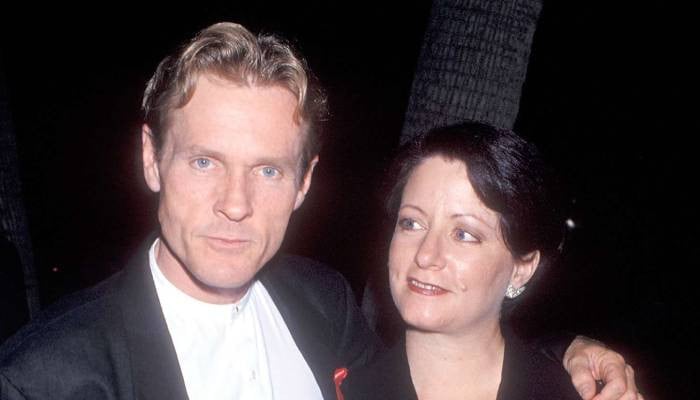Millions of Britons will face a ‘surprise’ hike in their energy bills from January 1 amid a shock price change plan.
Although for the vast majority of energy customers the rises will be minimal, some could be hit with a spike of more than £100 a year.
The Government has insisted the annual average bill will still be around £2,500. What is changing is the maximum rates suppliers can charge per unit.
The alterations will affect the 12 energy regions in the UK, meaning they will now be able to change their prices to this top new level.
For some households, it could see energy tariffs go up by as much as 8.9 per cent although, broadly, bills for most will only increase by a few pounds per year.
Energy bills for millions of people are set to rise on January 1 after a change to the maximum charges energy firms are allowed to set (stock image)
It comes as millions of households continue to struggle with the cost of living crisis, which has seen energy, fuel and grocery bills balloon.
Customers are being urged not to panic if they receive a surprise letter informing them of the price changes.
How much are bills changing by and why?
Broadly speaking, the changes are only fractions of a penny for most and won’t represent a massive surge in bills.
The hike will be worst for those households in North Wales and the Merseyside area who pay for their electricity after the fact, and not by direct debit.
Their bills are set to rise by more than £5 per month between next month and April.
Bills will also go down for some households. Those in the north of England will likely pay around £3.90 less per month from Sunday.
The changes are made to the amount that energy suppliers charge per unit of gas and electricity they supply.
They come into force at the beginning of January and last until the beginning of April.
The changes are small compared with recent major swings in how much the Government’s energy price guarantee, which caps per unit charges, still applies.
The monthly charges are calculated based on what the average household uses in a year – 4,200 units of electricity and 12,000 units of gas – and assume that usage is spread evenly over the year.
As people use more gas during the winter, the actual figures are likely to be somewhat larger.
Which customers could see the biggest increase in their bills?
Increases for the majority of Britons will be fairly minimal. But some people living on certain tariffs could see their yearly bills increase by more than £100 (stock image)
Although for most people, the increases will be relatively trivial, a limited few could see some shock rises.
People who pay on so-called standard credit, which means they get an invoice every month or quarter and do not pay by direct debit, will be the worst hit by the changes.
Their bills are set to go up by around £3.90 per month on average, ranging from around £2.60 in the North of England to £5.60 in the Mersey and North Wales region
Prepayment meter customers will see an average bill increase of £1.50, while those who pay by direct debit will see an average increase of just two pence.
But customers on Economy 7 tariffs could face significant rises. The tariff setup sees customers paying two different prices per day – a day rate and a cheaper, seven-hour long rate overnight.
What are the price changes like for Economy 7 customers?
Some customers on E.On Next have taken to social media to reveal their price increase, with one saying their night rate was going up from 13.968p per kilowatt hour (kWh) to 16.411p per kWh – a hike of 17 per cent.
And they claimed their day rate was also increasing from 42.224p per kWh to 44.668p per kWh.
Similar increases have been reported by some customers on Economy 7 tariffs at Bulb Energy.
One complainant claimed their day rate was ballooning from 38.593p to 41.687p per kWh while their cheaper night rate was going up from 22.838p to 24.669p
Bulb said that while some customers were seeing increases, others would see their bills cut.
Meanwhile EDF said some of its Economy 7 and 10 customers may see prices going up from January 1, with people paying by cash cheque seeing the biggest average rise of 8.9 per cent – an extra £143.97 a year.
And those on Economy 10 tariffs will see yearly bills of £1,595.19 rising to £1,733.52 – £138.33 a year more, reported The Sun.
Hikes will also be on the way for those paying by direct debit, with Economy 7 customers paying £103.90 a year more and Economy 10 increasing by £98.51 a year.
Customers on Utilita will see an average five per cent hike on yearly Economy 7 tariff bills.
Octopus Energy is increasing prices for some 300,000 customers on Economy 7 tariffs by eight per cent, meaning bills could rise by £125 a year – although the exact increase will depend on where customers live.
British Gas will increase prices on its Economy 7 although the firm hasn’t said by how much, with a spokesperson saying customer bills will be determined by how much energy they use.
Rises are also expected for Shell Energy customers – although exact changes have not been released.
What do the experts say about the increase in prices?
Consumer champion Martin Lewis, of Money Saving Expert, said the January 1 price increases could come as a ‘surprise’ to millions
Money-saving tsar Martin Lewis said the change for many will be trivial but warned that for some, it could come as an unwelcome surprise.
Mr Lewis, founder of Money Saving Expert, said: ‘The energy price guarantee was meant to guarantee prices until the end of March (when we know the cost people pay will increase by 20 per cent). So it will come as a surprise to many to see prices change in January.
‘For most people the change will be trivial, but it is disappointing to see more substantial increases, with some on prepay meters seeing rises of one per cent, which include most of the poorest in society.
‘The bump up for those who pay in receipt of bills takes the premium for paying that way to more than 10 per cent over direct debit – so while many like the extra control, it’s important to be aware that with typical bills from January you’ll pay £260 a year for it.’
Why are prices changing – weren’t they meant to be fixed until March?
The energy price cap is calculated by Ofgem and protected by the Government. It sets the maximum price energy firms can charge consumers each kilowatt hour.
On top of this, ministers announced the energy price guarantee in October, which is an additional temporary measure that seeks to protect Britons for soaring energy bills.
The guarantee fixes prices to a maximum of £2,500 – the average figure of energy usage. This will rise to £3,000 in April.
When the price cap is higher than the Government’s price guarantee – which it is now – it means Whitehall will pay the difference, protecting household from soaring prices.
What is the Government saying about the situation?
Energy Secretary Grant Shapps, pictured, insisted the January 1 rises will be ‘marginal for most’
Grants Shapps, Britain’s Energy Secretary, has insisted the January 1 rises will be ‘marginal for most people’ and that the Government will keep what support it offers ‘under review at all times’.
‘We acknowledge the way the energy price guarantee and the energy price cap interact isn’t perfect, but it’s right we move quickly to support people this winter,’ he added.
‘The energy price guarantee will keep bills at around £2,500 for a typical household this winter and we’re grateful to you for continuing to make that clear.’
Addressing the change in prices for customers tariffs like Economy 7, the Government added that for these people ‘suppliers have flexibility to apply slightly different discounts to the individual rates within the tariff, helping to balance out the reduction of more expensive day rates with cheaper night-time electricity rates. Each supplier will approach this differently’.
For the latest headlines, follow our Google News channel
Source link
hartford car insurance shop car insurance best car insurance quotes best online car insurance get auto insurance quotes auto insurance quotes most affordable car insurance car insurance providers car insurance best deals best insurance quotes get car insurance online best comprehensive car insurance best cheap auto insurance auto policy switching car insurance car insurance quotes auto insurance best affordable car insurance online auto insurance quotes az auto insurance commercial auto insurance instant car insurance buy car insurance online best auto insurance companies best car insurance policy best auto insurance vehicle insurance quotes aaa insurance quote auto and home insurance quotes car insurance search best and cheapest car insurance best price car insurance best vehicle insurance aaa car insurance quote find cheap car insurance new car insurance quote auto insurance companies get car insurance quotes best cheap car insurance car insurance policy online new car insurance policy get car insurance car insurance company best cheap insurance car insurance online quote car insurance finder comprehensive insurance quote car insurance quotes near me get insurance







